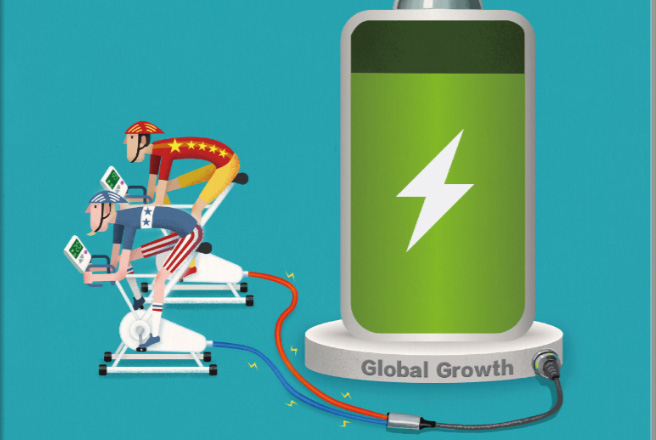Joseph S. Nye
Professor, Harvard University
Jul 09, 2020
Many analysts argue that the liberal international order ended with the rise of China and the election of US President Donald Trump. But if Joe Biden defeats Trump in November’s election, should he try to revive it? Probably not, but he must replace it.

Jul 06, 2020
While the US and China have entered a new phase in their relationship, it is misleading to call it a new cold war. Both sides should find the requisite “bottoms” and “safety nets” that establish a framework that best suits the US-China cooperative rivalry.
May 08, 2020
Leadership – the ability to help people frame and achieve their goals – is absolutely crucial during a crisis. British Prime Minister Winston Churchill demonstrated this in 1940, as did Nelson Mandela during South Africa’s transition from apartheid.
Apr 07, 2020
COVID-19 is confronting humanity with its most severe test since 1918, when an influenza pandemic killed more people than died in World War I. Yet the top leaders of the world’s two largest economies, China and the United States, have failed the first round.
Mar 06, 2020
Many Americans say they want a moral foreign policy, but disagree on what that means. Using a three-dimensional scorecard encourages us to avoid simplistic answers and to look at the motives, means, and consequences of a US president’s actions.

Jan 15, 2020
When I told a friend I had just written a book on morality and foreign policy, she quipped: “It must be a very short book.” Such skepticism is common. An Internet search shows surprisingly few books on how US presidents’ moral views affected their foreign policies. As the eminent political theorist Michael Walzer once described American graduate training in international relations after 1945, “Moral argument was against the rules of the discipline as it was commonly practiced.”

Jan 10, 2020
While a partial trade agreement has been reached between the US and China, few believe that a full truce is underway. For 2020, the two countries should focus on managing interdependence and “smart competition” instead of being consumed by exaggerated fears.

Dec 18, 2019
In little more than a generation, the Internet has become a vital substrate for economic, social, and political interactions, and it has unlocked enormous gains. Along with greater interdependence, however, come vulnerability and conflict. Attacks by states and non-state actors have increased, threatening the stability of cyberspace.
Nov 08, 2019
The Kremlin is on a roll. Under President Vladimir Putin, Russia has replaced the United States in Syria, continues to intervene in Eastern Ukraine, and recently hosted an African summit in Sochi. Appearances, however, can be deceptive. True, Russia retains a vast nuclear arsenal, equal in size to that of the US, and it used force effectively against Georgia in 2008 and Ukraine in 2014; provided military assistance to save Bashar al-Assad’s regime in Syria; and has used cyber means to disrupt US and other elections. But Russia can only be an international spoiler. Behind the adventurism, it is a country in decline.
Sep 12, 2019
US President Donald Trump’s behavior at the recent G7 meeting in Biarritz was criticized as careless and disruptive by many observers. Others argued that the press and pundits pay too much attention to Trump’s personal antics, tweets, and political games. In the long run, they argue, historians will consider them mere peccadilloes. The larger question is whether the Trump presidency proves to be a major turning point in American foreign policy, or a minor historical blip.
